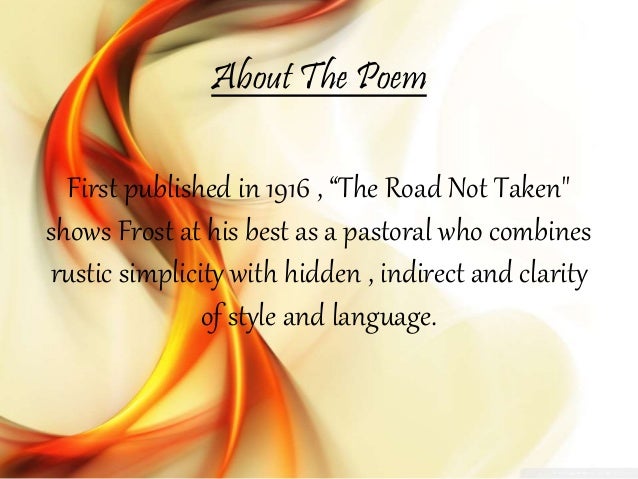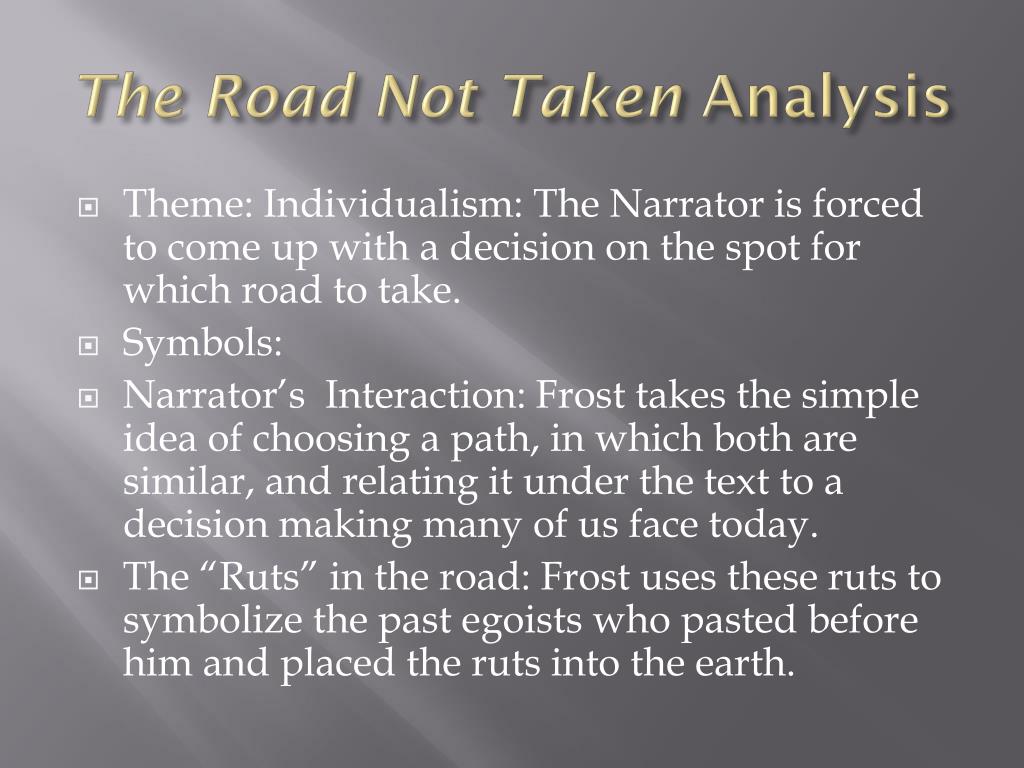


I am going to enlist on Wednesday if the doctor will pass me.”Īlthough there is no definitive proof, people speculate that Frost’s poem was what finally convinced Thomas to fight. “Last week I had screwed myself up to the point of believing I should come out to America… But I have altered my mind. In his writings, Thomas stated his indecision to immigrate or serve in the war.Ī brief period later, Edward Thomas committed himself to the army. Thomas had the opportunity to move himself and his family to America during the beginning of the conflict. Despite all this, the 37-year-old poet voluntarily took up arms to defend his country. He also had a family that he would leave behind if he served in the frontlines. He was an anti-nationalist who criticized the propaganda and racism espoused by British networks nearing the war. In a surprise move, the meek and indecisive Thomas enlisted with the British army. Even though Frost explained the poem’s intended meaning to his friend, Thomas refused to see the irony. Unfortunately, Edward Thomas also misunderstood Frost’s work. TragedyĮdward Thomas (1905), photo taken by an unknown photographer, Public Domain via Wikimedia Commons Taking one path over the other has actually made no difference.

He knows that he’ll console himself by romanticizing that he took the “less traveled road” despite the options being the same. Taken together, this means the persona knows that he will be fooling himself in the future. “I shall be telling this with a sigh Somewhere ages and ages hence: Two roads diverged in a wood, and I - I took the one less traveled by, And that has made all the difference.” So if both roads were the same, why did the persona claim to take the one less traveled by in the last two lines of the poem? Well, the lines right before the immortalized statement show that the persona is talking about his future self. “Though as for that the passing there Had worn them really about the same, And both that morning equally lay In leaves no step had trodden black.” A closer reading of the text in its entirety shows that the persona actually thinks both roads weren’t so different from each other. The poem was originally a humorous jab.įrost wrote the poem to demonstrate the folly of regretting what could have been. When Frost went back to America around the beginning of World War I, he wrote an early version of “The Road Not Taken” as a way to make fun of his frantic friend. Fussing over this inevitability, at least for Frost, was silly. Any choice would have to give up one for the other. He’d often state that if they had gone another way, then Frost would’ve been able to see some other interesting part of England.įrost found this amusing because any path they decided on would certainly have the same result. Thomas had an odd habit of regretting whichever path he took during his strolls with Frost. For inspiration and leisure, the duo would often go for walks around the English countryside. In his time there, he made friends with a fellow poet named Edward Thomas. Robert Frost spent some time in Great Britain during the early 20th century. Robert Frost (1910), photo taken by an unknown photographer, Public Domain via Wikimedia Commons


 0 kommentar(er)
0 kommentar(er)
